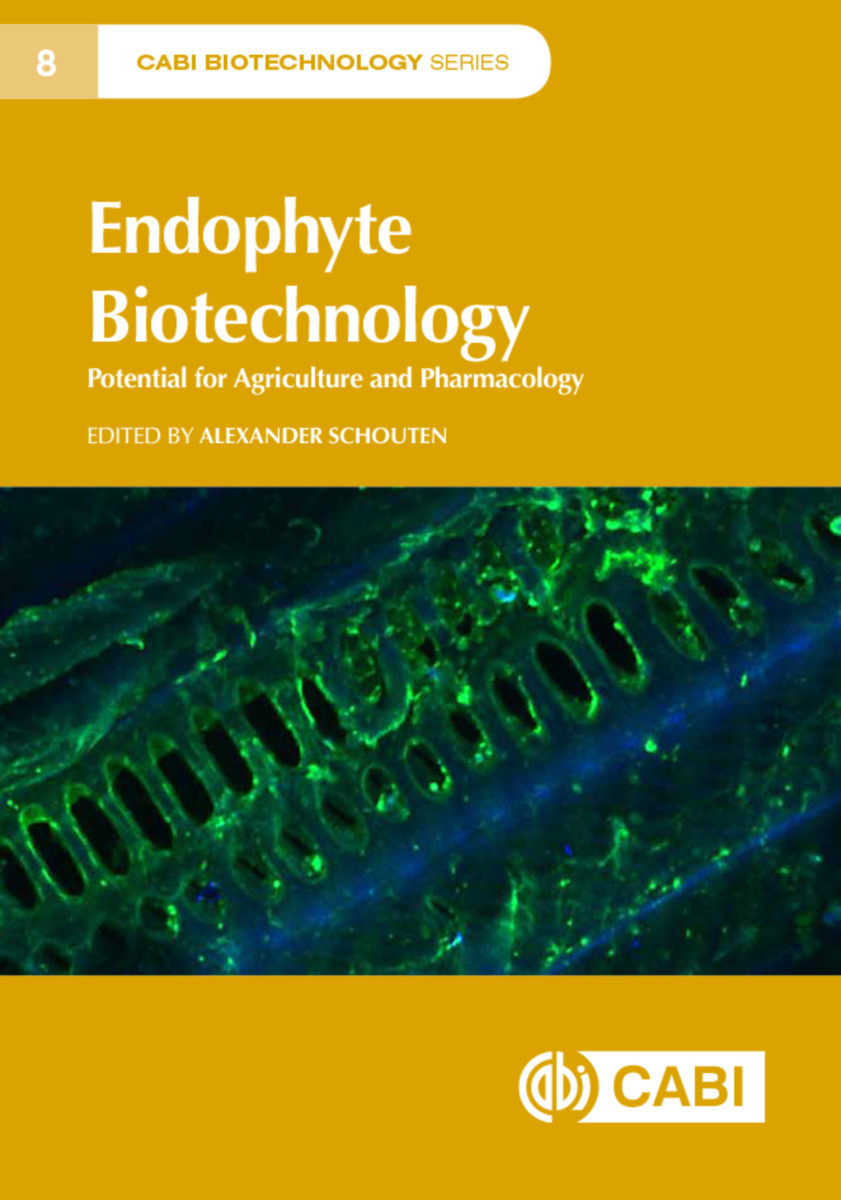Endophyte Biotechnology
Potential for Agriculture and Pharmacology
- Publisher
CABI - Published
5th December 2019 - ISBN 9781786399427
- Language English
- Pages 208 pp.
- Size 6" x 9"
Endophytes are bacterial and fungal microorganisms that colonize plants without usually eliciting visible disease symptoms but establishing intricate and mutually beneficial interactions with their host plant. This can lead to an increase in plant vigor, growth, development, and changes in plant metabolism. Endophytes may assist in the development of more productive and sustainable agricultural practices or discoveries of novel pharmacologicals. These elusive organisms are often overlooked and their benefits underrated.
Endophytes can support plants in a variety of ways to cope with biotic and abiotic stress factors, such as drought, heat, pests and diseases. They can produce particular metabolites, facilitate access to nutrients, change the plant's chemistry, physiology and responses, or by a combination of these factors. The biosynthetic pathways present in endophytes alone--or in combination with the plant's--can lead to novel chemicals, with yet undiscovered pharmacological characteristics. With state-of-the-art knowledge on their discovery and roles, this book describes the diversity of endophytes, their value, exploitation and future challenges.
Key Features:
- Provides an overview of the endophytes that are encountered in nature
- Demonstrates the beneficial effects of endophytes together with their practical applications in agriculture
- Explores how endophytes are valuable candidates for research on future drugs and biopesticides
1: Introduction
2: Endophytic fungi: Definitions, diversity, distribution and their significance in plant life
3: Sources, niches and routes of colonization by beneficial bacterial endophytes
4: Analysing seed endophytes for biotechnology
5: Mitigating Climate Impacts on Crop Production via Symbiosis
6: Endophytes as novel pest control agents: myth or reality?
7: Improved adaptation of temperate grasses through mutualism with fungal endophytes
8: Interactive effects of co-occurring epichloid endophytes, rhizobia and arbuscular mycorrhizal fungi modulating their benefits to grasses and legumes
9: Saving resources: The exploitation of endophytes by plants for the biosynthesis of multifunctional defense compounds
10: Bioprospecting of endophytes
11: Prospects for biotechnological exploitation of endophytes using functional metagenomics
12: Interplay between endophyte and host plant in the synthesis and modification of metabolites
Alexander Schouten
Professor Schouten graduated in 1989 from Wageningen University where he studied molecular plant pathology, majoring in nematology, virology and biochemistry. He obtained his PhD at the Laboratory of Nematology, Wageningen University in 1998 where he examined the expression of functional antibodies and antibody fragments in plants. Schouten then worked from 1998 to 2006 as a Postdoc at the Laboratory of Phytopathology, Wageningen University where he studied plant-pathogen and microbial interactions. He became Assistant Professor in 2006 and Associate Professor in 2010 at the Institute of Crop Science and Resource Conservation (INRES), University of Bonn, Germany, where he worked on the molecular, biochemical and biological aspects of endophytes and their application in controlling nematode pests in crops. Since 2015, he has been working as a scientist with the Laboratory of Nematology, Wageningen University, and a consultant for HGoTECH GmbH, Bonn, Germany.


